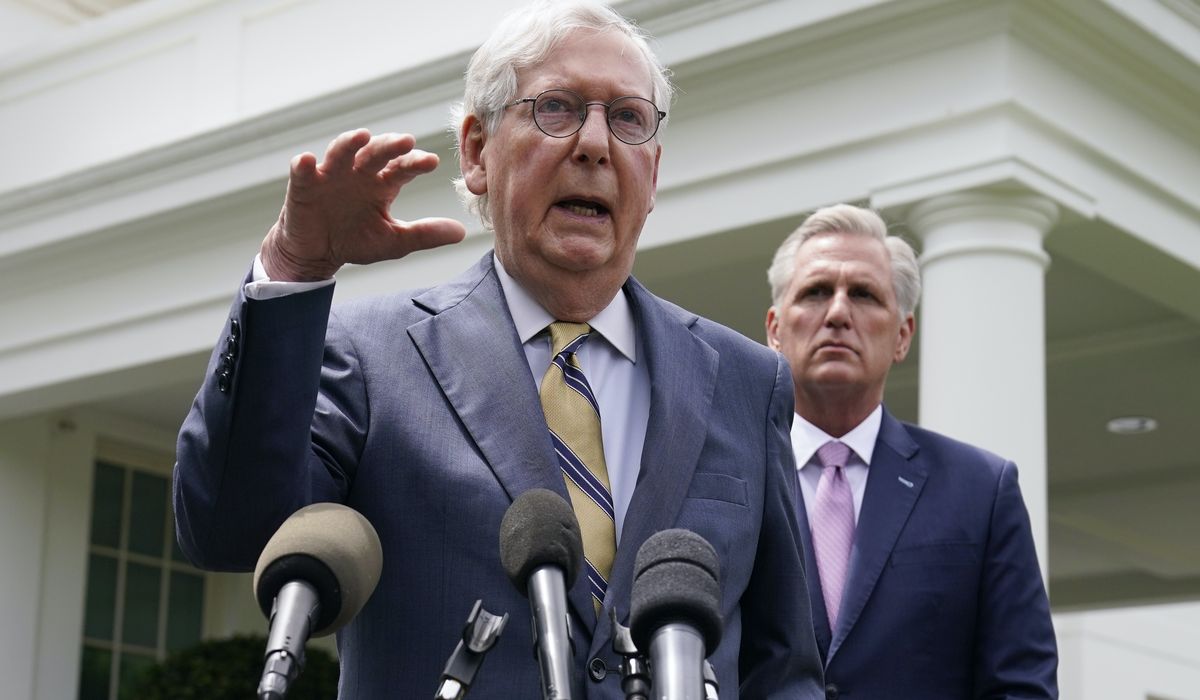
Democrats may be paving an eventual path to stiffer ballot standards if they trigger the “nuclear option” to carve out a special exception to Senate filibuster rules to approve voting rights legislation.
The next time Republicans take power in Washington, they will use the filibuster-free window to erase some Democratic changes and impose their own ideas about national election integrity, political professionals say.
Without a Democratic filibuster, Republicans could force states to clean up voter rolls or ban the practice of ballot harvesting.
Republicans promise it won’t stop there.
A filibuster exception for Democrats’ priority issue would quickly expand to accommodate Republicans the next time their party takes control of the political levers in Washington.
Sen. John Cornyn, Texas Republican, ticked off a list.
“More pro-life bills, more bills supporting, let’s see, universal carry under the Second Amendment, say more border security, more national security legislation to support our military,” Mr. Cornyn said. “Those are just a few of the areas.”
Democrats are wrestling with the filibuster, a defining feature of the Senate that gives the party out of power a say in legislative action. In this case, it is blocking Democrats from delivering on several major items on their wish list.
Party leaders entered the year pondering whether they could defang the filibuster across the board, but opposition from within their ranks shelved those plans. Democratic leaders then settled on a narrower strategy: carving out an exception for voting rights, which they say are under attack in Republican-led states.
Senate Majority Leader Charles E. Schumer’s exact strategy is still developing, but the New York Democrat appears to be angling for a vote this week on the “nuclear option” to change the rules to overcome a filibuster through a majority vote rather than the two-thirds usually required. As Republicans put it, Democrats would be breaking the rules to change the rules.
Democrats insist the filibuster carve-out would apply only to voting rights.
That leaves Republicans plenty of room to maneuver.
J. Christian Adams, president of the voter integrity group Public Interest Legal Foundation, said Republicans could use a voting rights carve-out to tackle long-standing issues with dirty voter rolls and the legacies of the 1993 motor voter law and the 2002 Help America Vote Act. He said a conflict between the laws has allowed noncitizens to register to vote and, in some cases, to illegally cast ballots in federal elections.
“One of the things they need to do is clean up motor voter,” Mr. Adams said.
Republicans also have been eyeing a crackdown on what is known as ballot harvesting, where political operatives collect and file ballots mailed to voters. Republicans say the practice is ripe for fraud or pressure on vulnerable voters.
A national standard for voter ID also could be in the future, though Mr. Adams urged caution on that score. He said such a law would be only as good as the Justice Department’s willingness to enforce it.
“I know the people who would be enforcing this national standard, and they’re not going to enforce it,” said Mr. Adams, who used to work on voting rights in the department.
Democrats are well aware of what Republicans might do.
That is one reason Sen. Joe Manchin III, West Virginia Democrat, has resisted using the nuclear option to change the filibuster rules.
“Any time there’s a carve-out, you eat the whole turkey. There’s nothing left,” he told reporters this month.
Other members of the Democratic Caucus said the chance is worth taking.
“That’s the risk, but it’s a risk that we have to take on behalf of protecting democracy,” said Sen. Angus S. King Jr., an independent from Maine who caucuses with Democrats.
Minority Leader Mitch McConnell, Kentucky Republican, said he has identified 18 bills he would pursue if the filibuster is defanged, including proposals on environmental policy and immigration.
Punishing sanctuary cities, blocking settlement payments to illegal immigrants arrested at the border and approving construction of the Keystone XL pipeline would be prime offers.
Indeed, Mr. McConnell has signaled no need to wait for Republicans to take the Senate majority.
Though the power is rarely used, any senator can try to force a bill to the floor. Mr. McConnell said he will do that if the Senate lowers the threshold for cloture, or cutting off debate on legislation. Republicans have already introduced the 18 bills, making them available for action.
Some Democrats say they expect Republicans to eliminate the filibuster the next time they control the Senate, so it makes sense for Democrats to do it now and tally whatever gains they can.
“There’s every reason to believe they would do that anyway, one way or the other,” said Sen. Sheldon Whitehouse, Rhode Island Democrat.
When Democrats triggered the nuclear option in 2013 to end filibusters of presidential nominees, he said, they left out Supreme Court nominees in part because Republicans begged for that carve-out. Then Republicans gained control. When the next Supreme Court justice was nominated, Republicans triggered the nuclear option.
“They have no credibility on this point, unfortunately,” he said.
His recollection of 2013 conflicts with those of other Democrats, including Mr. Schumer. The top Democrat told CNN in 2017 that he argued against the Supreme Court exception as well as the one for Cabinet nominees.
“I won on Supreme Court, lost on Cabinet,” Mr. Schumer said.
Mr. McConnell warned Democrats in 2013 that breaching the filibuster wall on some nominees would apply next to the Supreme Court.
“If the majority leader changes the rules for some judicial nominees, he is effectively changing them for all judicial nominees, including the Supreme Court,” he said.
Mr. McConnell fulfilled that prophecy in 2017 by installing the first of President Trump’s three Supreme Court nominees after using the nuclear option to change filibuster rules for justices.
He now offers that example as a caution for Democrats eager for another round of nuclear warfare in the Senate.








